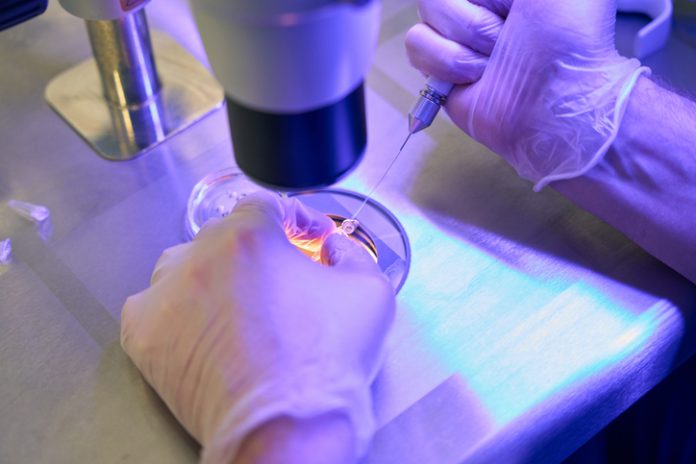The U.S. Department of Veterans Affairs (VA) is expanding its coverage of in vitro fertilization (IVF) for service-connected infertility to gay couples and unmarried vets.
The VA previously only covered IVF if the veteran was in a married relationship and could conceive naturally if not for an injury or a health condition resulting from military service. The policy change allows the VA to cover IVF using donated ova, sperm, or embryos if the service member is unable to conceive. IVF, also called assisted reproductive technology, can cost $30,000 or more for a single treatment. IVF also involves the destruction of human embryos, which many taxpayers find objectionable.
Sen. Patty Murray (D-WA), a former chair of the Senate Veterans Affairs Committee, introduced the Veteran Families Health Services Act in 2023. Murray’s bill would “permanently authorize fertility treatment to more veterans and ensure that spouses, ‘partners,’ and gestational surrogates are included in the eligibility rules,” ABC News reported.
Sen. James Lankford (R-OK), says he opposes Murray’s bill for its expansion of services and lack of a cost estimate, said on the Senate floor, “So all of these issues, I look at and say this has not been fully vetted through what this actually is, and what it actually does, nor the cost of it,” ABC News reported.
‘Potential For Abuse’
The VA’s policy is vague and raises eligibility issues, says Jim Pruett, a post surgeon ( a chairman for the health committee) for VFW Post 7103 in Athens, Texas.
“While the VA’s expansion does allow for use of donated sperm and ovum, it does not elaborate beyond that,” said Pruett. “My guess is they would use the ovum/sperm of the military member and spouse if they are viable—but if they aren’t, then they would allow for donated sperm/ovum. I would assume there could be potential for abuse but cannot find enough info to ascertain what safeguards the VA will have in place to monitor and control that aspect.”
‘It’s Not Health Care’
Like cosmetic surgery; IVF is not health care, says John C. Goodman, Ph.D., co-publisher of Health Care News and president of the Goodman Institute for Public Policy Research.
“It is not a medical condition that arises through an unpredictable event,” said Goodman. “It is a choice people make in pursuit of goals of their own choosing.”
There is nothing wrong with the goals or the procedures, says Goodman, but there is no reason why other people should bear the costs.
Any complicated, expensive medical care like IVF procedures is likely to be contracted out by the VA, says John Dale Dunn, M.D., J.D., a physician, and policy advisor to The Heartland Institute, which publishes Health Care News.
“That’s common; the VA doesn’t have in-house specialty capability for some things,” said Dunn.
‘People Who Run the VA Are Advocates’
The VA has been highjacked and will continue to modify its benefits package to include promoting sexual deviancy and family breakdown, says Dunn.
“…That is the explanation for what has happened,” said Dunn. “The next step in this logical progression is VA therapies catering to the many paraphilias—and there are a bunch of them.”
Dunn points to the warning from Supreme Court Justice Antonin Scalia that constitutionally protecting homosexual activity would open the door for a wide range of deviancy. Dunn says this has been at the forefront of Marxist-Socialist agitation designed to break down the institution of the family and morality in general to control people.
“The people who run the VA are advocates of this nihilist ideology that is the essence of Marxism,” he said. “They have been indoctrinated and are committed true believer Marxists.”
VA Needs to Focus on Health
The VA is criticized for long wait times for treatment at VA hospitals and clinics, as a reader commented in an article on the VA’s new IVF policy on the CV News Feed.
“I do not understand why the VA would provide this care at all, or any pregnancy care. VA services should be for service-related conditions—period,” wrote the reader. “All other care should be sent to the community. Since it takes 6-9 months to assess a VA claim, continuing care for pregnancy is rarely service connected. Maybe if VA focused on actual veteran medical issues the care would improve.”
Kenneth Artz (KApublishing@gmx.com) writes from Tyler, Texas.





















